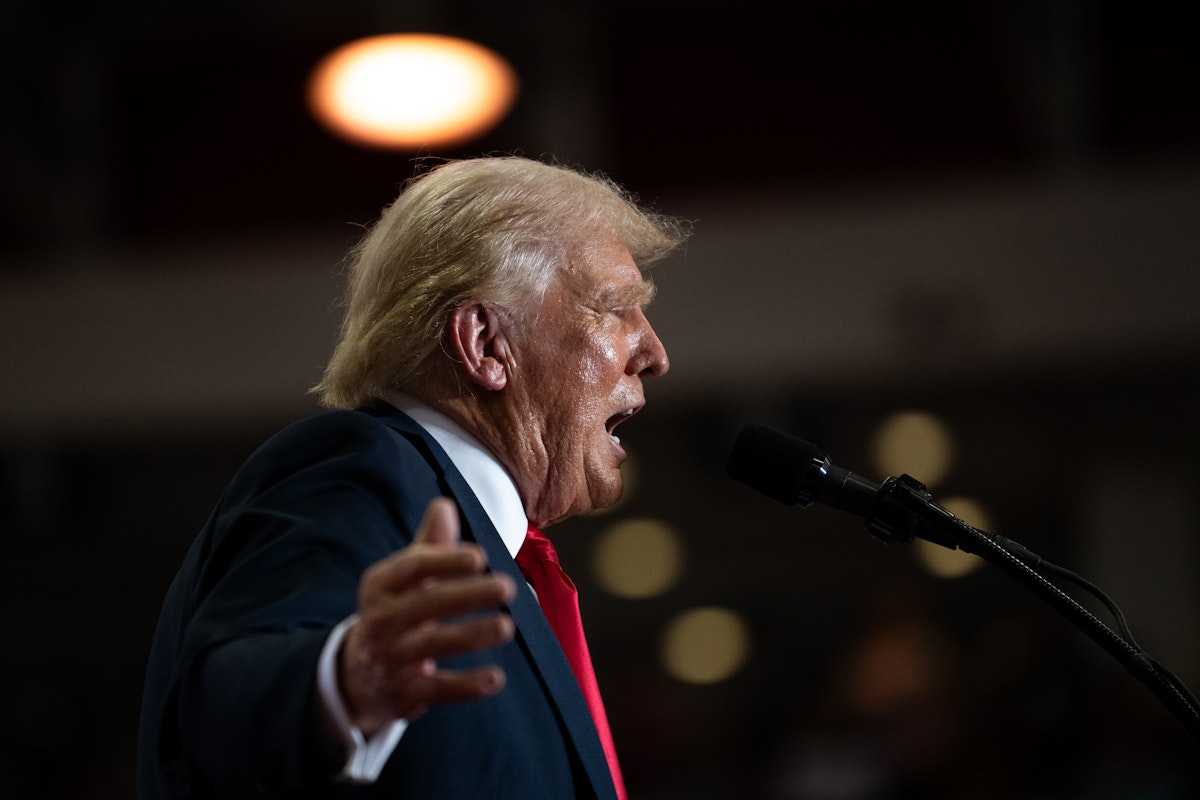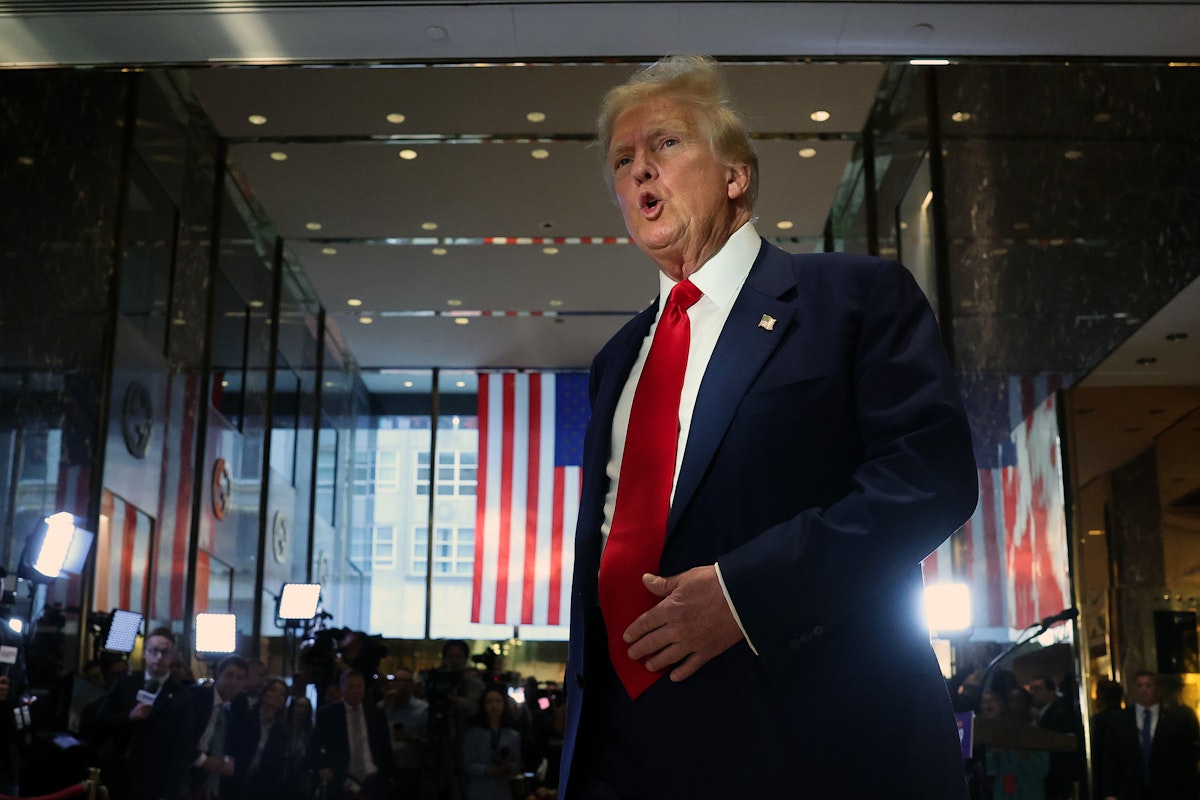New Report Details Terrifying Threat of Trump’s Election Deniers
At least 70 pro–Donald Trump election denialists are working as election officials in key swing states, according to a report published Monday from Rolling Stone and the right-wing extremism research newsletter American Doom.Officials who had promoted election conspiracy theories were identified in at least 16 counties in six swing states: Arizona, Georgia, Michigan, Nevada, North Carolina, and Pennsylvania. These individuals were identified through scouring coverage of refusals to certify 2020 election results and other denialist behavior, as well as sifting through the social media profiles of election officials in these states. Across these swing states, Trump loyalists stand ready to disrupt the results of democratically held elections—at least 22 of them have already refused or delayed certification in recent years, indicating likely chaos in November. Republicans have even begun fighting for the right to refuse to certify elections based on absolutely nothing.In May, Fulton County election board official Julie Adams launched a lawsuit against the county, hoping to access voting records that she claims she was barred from seeing by Fulton County’s election director, and seeking a court ruling on whether her duty to certify election results is “discretionary, not ministerial, in nature,” according to the suit. Fulton County is a Democratic stronghold. Adams, a staunch election denier, is backed by the America First Policy Institute, or AFPI, a Trump-supporting think tank. Adams is hoping to upend years of precedent and Georgia state law, according to Protect Democracy, a democratic nonprofit that contends that certifying election results “is a mandatory, ministerial duty, meaning that officials have no discretion to refuse to certify election results.”While legal experts predict that it’s unlikely a judge will side with Adams, she once again refused to certify the results of a run-off election later in June. Adams isn’t alone in her state. David Hancock, an election official in Gwinnett County outside of Atlanta, is “working to change” the guidelines around election certification, according to a post on his Facebook page. In March, he refused to certify the results of his county’s presidential primary election, although he has yet to give a real answer as to why. Georgia has had the highest number of certification refusals since 2020 of anywhere in the country. Its five-person state election board—which American Doom found contained two election-denying conspiracy theorists—has set to work formulating a new rule that would allow election officials to refuse to certify results if a “reasonable inquiry” can be made into claims of election fraud. The Trump-friendly board has been accused of ethics violations after not giving proper notice to its Democratic members about a meeting that it used to advance election rule changes. All of this is particularly problematic because Republicans believe that refusing to certify the results of an election in and of itself can be used as evidence of election fraud. In a never-issued executive order from December 2020, Trump cited officials in Coffee County, Georgia, refusing to certify the results of the 2020 election as proof that voter fraud had likely occurred, and reason enough to seize voting machines. Should the refusal to certify results become discretionary, Republicans will have a pile of so-called evidence to point to in November. It’s entirely likely that Republicans will use their own widespread claims of voter fraud, and refusal to certify, to not only stall but ultimately refute election results.

At least 70 pro–Donald Trump election denialists are working as election officials in key swing states, according to a report published Monday from Rolling Stone and the right-wing extremism research newsletter American Doom.
Officials who had promoted election conspiracy theories were identified in at least 16 counties in six swing states: Arizona, Georgia, Michigan, Nevada, North Carolina, and Pennsylvania. These individuals were identified through scouring coverage of refusals to certify 2020 election results and other denialist behavior, as well as sifting through the social media profiles of election officials in these states.
Across these swing states, Trump loyalists stand ready to disrupt the results of democratically held elections—at least 22 of them have already refused or delayed certification in recent years, indicating likely chaos in November.
Republicans have even begun fighting for the right to refuse to certify elections based on absolutely nothing.
In May, Fulton County election board official Julie Adams launched a lawsuit against the county, hoping to access voting records that she claims she was barred from seeing by Fulton County’s election director, and seeking a court ruling on whether her duty to certify election results is “discretionary, not ministerial, in nature,” according to the suit. Fulton County is a Democratic stronghold.
Adams, a staunch election denier, is backed by the America First Policy Institute, or AFPI, a Trump-supporting think tank. Adams is hoping to upend years of precedent and Georgia state law, according to Protect Democracy, a democratic nonprofit that contends that certifying election results “is a mandatory, ministerial duty, meaning that officials have no discretion to refuse to certify election results.”
While legal experts predict that it’s unlikely a judge will side with Adams, she once again refused to certify the results of a run-off election later in June.
Adams isn’t alone in her state. David Hancock, an election official in Gwinnett County outside of Atlanta, is “working to change” the guidelines around election certification, according to a post on his Facebook page. In March, he refused to certify the results of his county’s presidential primary election, although he has yet to give a real answer as to why.
Georgia has had the highest number of certification refusals since 2020 of anywhere in the country. Its five-person state election board—which American Doom found contained two election-denying conspiracy theorists—has set to work formulating a new rule that would allow election officials to refuse to certify results if a “reasonable inquiry” can be made into claims of election fraud. The Trump-friendly board has been accused of ethics violations after not giving proper notice to its Democratic members about a meeting that it used to advance election rule changes.
All of this is particularly problematic because Republicans believe that refusing to certify the results of an election in and of itself can be used as evidence of election fraud. In a never-issued executive order from December 2020, Trump cited officials in Coffee County, Georgia, refusing to certify the results of the 2020 election as proof that voter fraud had likely occurred, and reason enough to seize voting machines.
Should the refusal to certify results become discretionary, Republicans will have a pile of so-called evidence to point to in November. It’s entirely likely that Republicans will use their own widespread claims of voter fraud, and refusal to certify, to not only stall but ultimately refute election results.



